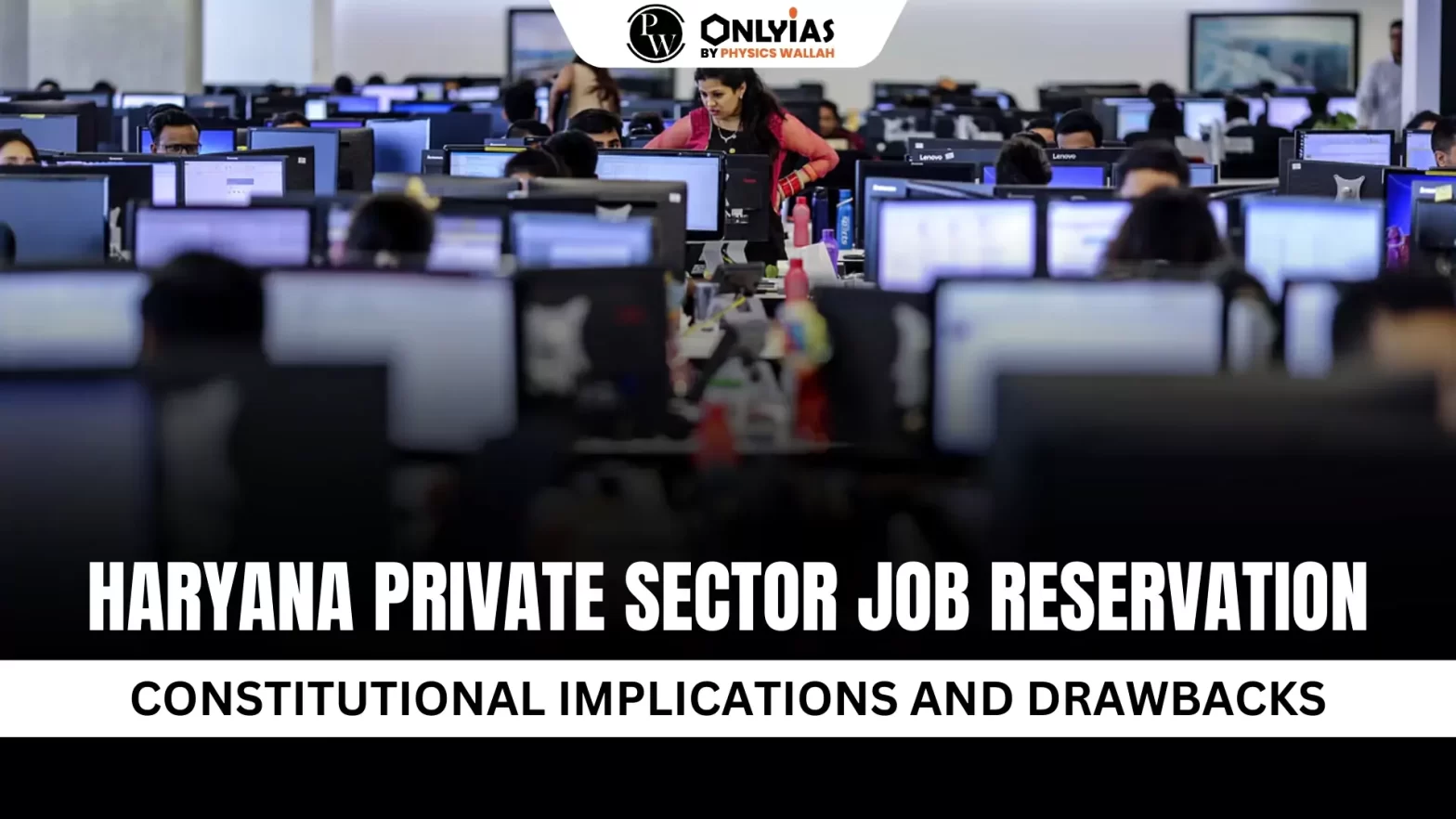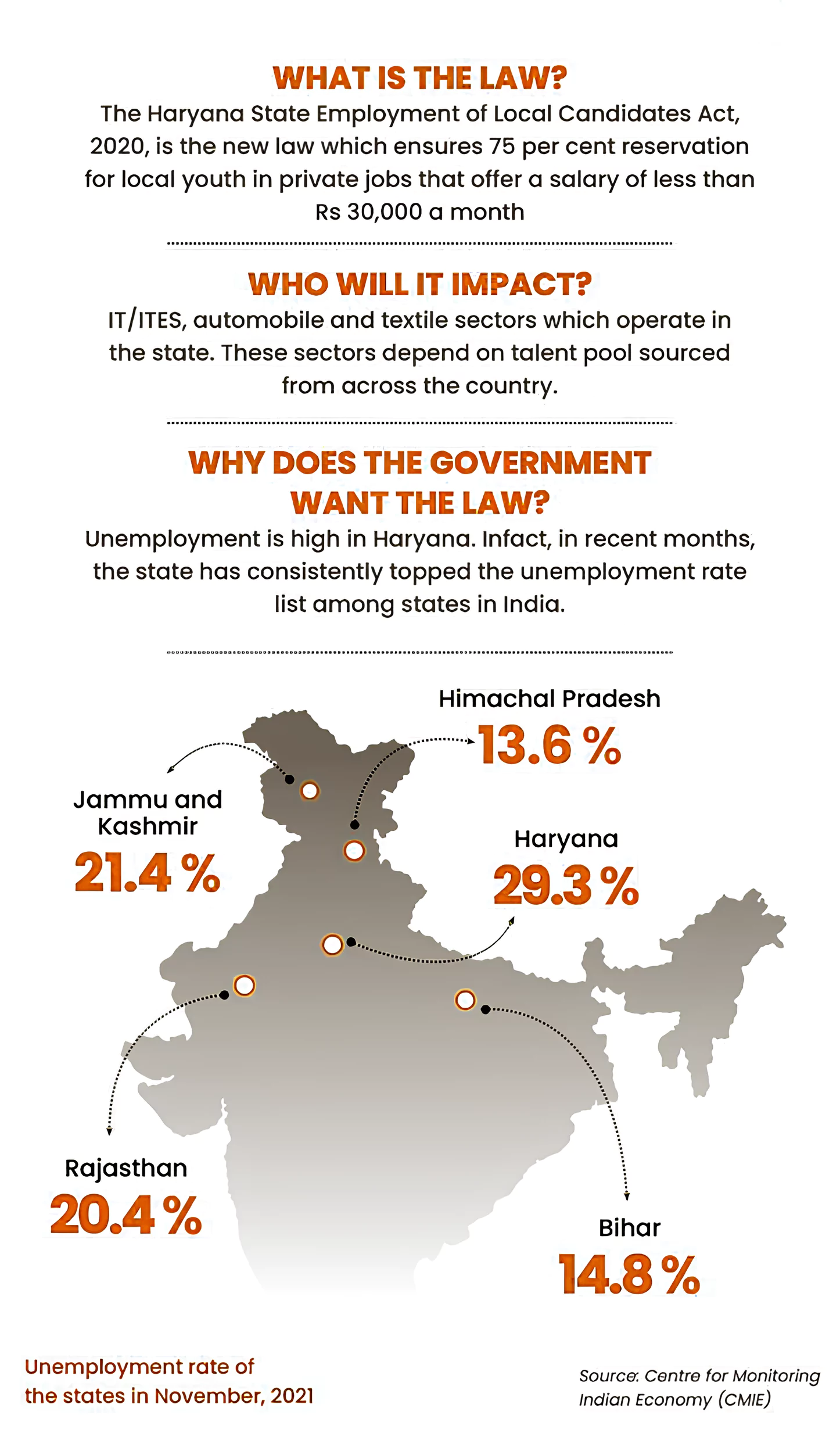Context: The High Court of Punjab and Haryana has scrapped the policy of Haryana government that provided 75 percent job reservation in private sector jobs to the residents of the state.


| State | Measures |
| Andhra Pradesh | 75% Job reservation in the private sector for locals in industry/factories (including PPP mode). |
| Karnataka | 100% Job reservation for locals in blue-collar jobs. This is still under consideration. |
| Maharashtra | The state government is planning to introduce a legislation that would make it mandatory for the private sector in the state to reserve 80% jobs to locals. |
| Madhya Pradesh | The Previous government was mulling to bring in a law that provided 70% jobs to locals from the state. |
| Must Read | |
| NCERT Notes For UPSC | UPSC Daily Current Affairs |
| UPSC Blogs | UPSC Daily Editorials |
| Daily Current Affairs Quiz | Daily Main Answer Writing |
| UPSC Mains Previous Year Papers | UPSC Test Series 2024 |
The High Court of Punjab and Haryana has scrapped the policy of Haryana government that provided 75 percent reservation in private sector jobs to the residents of the state.
The court completely scrapped the Haryana State Employment of Local Candidates Act, 2020 as it violated Articles 14 and 19 of the Constitution.
The law applied to private sector companies, societies, trusts, limited liability partnership firms, partnership firms, and any person employing 10 or more persons on salary, wages, or other remuneration for manufacturing, carrying on business, or providing any service in Haryana.
Failure to implement the act would have attracted a fine between Rs 50,000 and two lakh rupees, with an additional penalty of Rs 1,000 for each day till the violation continues.
Reservation in public employment was confined to Scheduled Castes and Scheduled Tribes but was extended to Other Backward Classes as well on the basis of the recommendations of the Mandal Commission. The Mandal Commission recommended providing 27% reservation to Other Backward Classes in central services and public sector undertakings, over and above the existing reservation.
<div class="new-fform">
</div>